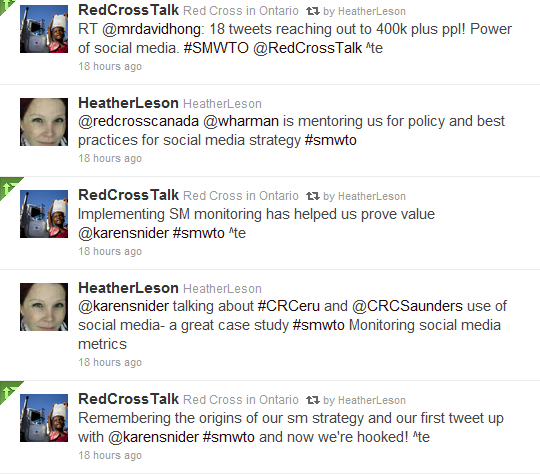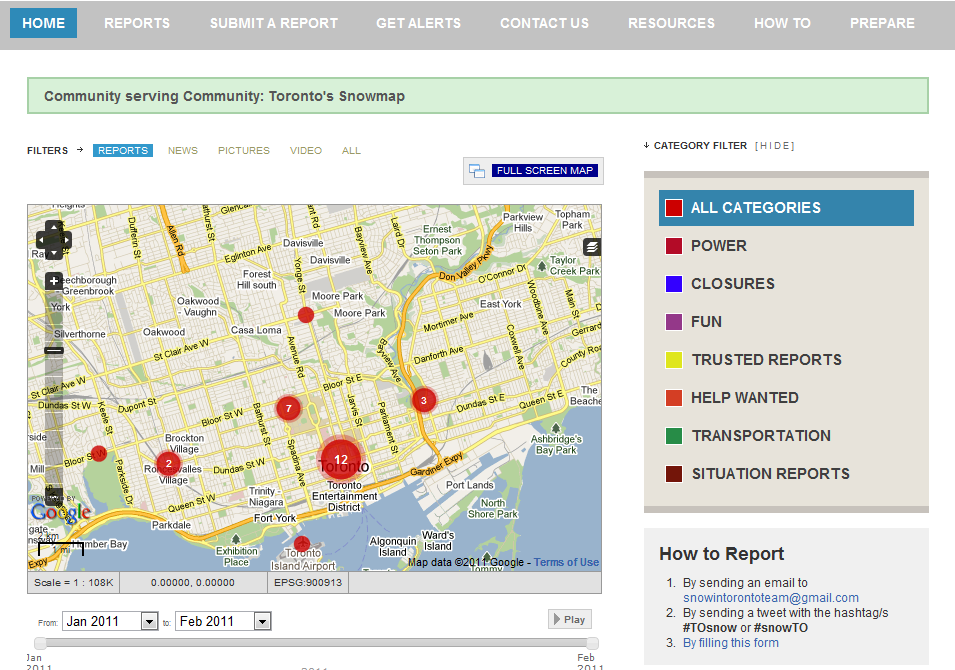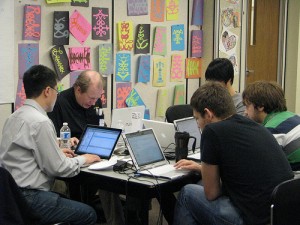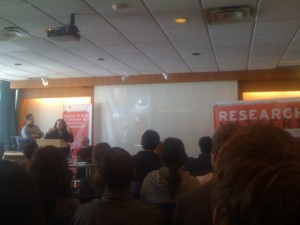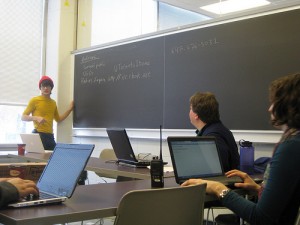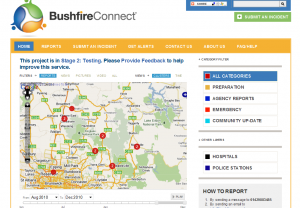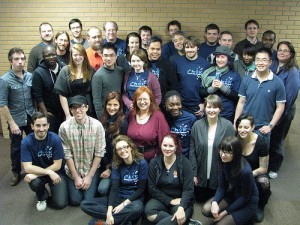Improving Disaster Response and Humanitarian Aid in Times of Crisis
New project harnesses technology to create new form of digital volunteerism
(Cross-posted from the Crisiscommons.org blog)

We have come a long way together in the last year as a community and a concept, and today the Woodrow Wilson International Center for Scholars was awarded a two year, $1.2 million dollar grant from the Alfred P. Sloan Foundation. This grant is to support CrisisCommons as a full-time project for two years working in collaboration with the Wilson Center. This is a exciting step for our community as it provides support to further the opportunity to develope a commons-based approach to crisis management and global development.
As of January 1, 2011, CrisisCommons will continue its work as a project of the Woodrow Wilson International Center for Scholars. The grant will focus on three main objectives:
- To provide community and technology liaison support during and after disasters;
- To facilitate a shared approach to research and innovation; and
- To establish trust and formalize relationships in the crisis response and volunteer technology communities.
Activities underneath will include providing community and infrastructure support for CrisisCamp and convening of the second and third annual International CrisisCongress. Outcomes aim to include growth and tools for CrisisCamp community and a Technology roadmap as well as a Research and Innovation Agenda. We will be conducting an open call on Saturday, December 18, 2010 at 1:00PM EST. Everyone is welcome to join! Check our Google group for updates!
The grant runs from January 1, 2011 until December 31, 2012, so we’re only a few weeks away from starting. In preparation, if you have any thoughts on what are priorities for CrisisCommons in the next six months, year or two years, please email us with any and all suggestions/thoughts.
More Great News! CrisisCommons Infrastructure To Be Hosted By OSU’s Open Source Lab
In addition to the Sloan grant announcement, CrisisCommons is pleased to also announce a partnership with Oregon State University’s Open Source Lab to provide infrastructure resources for CrisisCamp and CrisisCommons. We are delighted to be able to learn from experts in open source communities and provide scalable and reliable resources for CrisisCamp technology innovation and response efforts.
We are so happy to share with you a note from Deb Bryant at OSL, “The Oregon State University Open Source Lab is proud to host CrisisCommons, along with several other humanitarian free and open source software projects. We are pleased that we are able to strengthen the community as they pursue their mission to help those most in need.”
Many Thanks To Paula and David
We would like to express our deepest thanks to Dr. Paula Olsiewski, our Project Director at the Alfred P. Sloan Foundation. Her enthusiastic support and championing of our work as well as her generous guidance have been invaluable for both the development of this grant and for the planning grant (again in collaboration with the Wilson Center) from earlier this year.
We are incredibly grateful for our partnership with Dr. David Rejeski, Director of the Woodrow Wilson International Center for Scholar’s Science and Technology Innovation Program who has been our “rock.” He provides guidance as well as bandwidth to be as creative and innovative as we can be. He, along with Paula, have mentored the Commons in considerations.
Gratitude To Each One Of You
We are very grateful for each and every person who came out to CrisisCamp, worked virtually and who continue on the journey with us.
We especially want to thank our workgroup leads, Heather Leson, Deborah Shaddon, Chad Catachio, Melanie Gorka and Jasmin Phau for their commitment to documenting insights and reflections in infrastructure, projects and community. We especially want to thank Chris “Spike” Foote who continues to keep the fires burning on the wiki and servers. There are hundred of people and organizations who volunteered and continue to lead efforts across the world. We are very grateful to you all.
There were six organizations who wrote letters of support of our request to the Alfred P. Sloan Foundation including the World Bank, American Red Cross, John Hopkins University Department of Computer Science, Carnegie Mellon University at Silicon Valley, University of Colorado at Colorado Springs, and Berkman Center for Internet and Society at Harvard University. We thank you all for your support.
We are especially grateful to the World Bank. They have supported CrisisCamp and helped foster the development of the concept of CrisisCommons since the very first CrisisCamp in 2009. We are very thankful for their continued support of our efforts, including hosting the First International CrisisCongress this past July. In particular, we are grateful to the many components of the World Bank who have been steadfast in support of CrisisCamp and CrisisCommons, including Latin America and Caribbean Group, the East Asia Pacific Group, Innovation Practice Group and the Global Facility on Disaster Reduction and Recovery.
We want to thank our good friends who have collaborated since day one and believe, like we do, in the power of technology volunteers and open data. We are so grateful for their support, partnership and friendship of Patrick Meier of Ushahidi, Jen Ziemke of CrisisMappers, Mark Prusalis of the Sahana Foundation, Mikel Miron and Kate Chapman from the Humanitarian OpenStreetMap Team, John Crowley of the Harvard Humanitarian Initiative, Dr. Linton Wells from the National Defense University’s STAR-TIDES program, Schuyler Erle and all the great folks at Random Hacks of Kindness with particular hugs to Patrick Svenburg of Microsoft, Jeremy Johnstone of Yahoo! and Prem Ramaswami of Google.
We want to highlight the genius of our research leads Chaira Lucchini Gilera and Geetu Ambwani as well as writing prowess Colin Flood who contributed to research and writing of the First International CrisisCongress After Action Report (to be released in January 2011) which accompanied this proposal. Big twinkles for you guys.
We want to thank Colin MacLay at the Berkman Center and Dr. William Dutton at the Oxford Internet Institute for hosting roundtables which helped us validate our approach of the challenges and potential opportunities of CrisisCommons concept. We also want to thank Tim O’Reilly for having us at FooCamp and Rob Dudgeon for inviting us to participate as an observer at the Golden Guardian Exercise.
We want to share gratitude for Mitchell Baker, Mark Surman, Chelsea Novak and Matt Thompson at the Mozilla Foundation for providing community facilitation support from Allen Gunn of Aspiratech to moderate the First International CrisisCongress. We don’t think we can live without him now!
We also want to thank Craig Newmark and Susan Nesbitt from the craigslist foundation who have coached us and provided unwavering public support for our efforts. A big thanks goes to Andrew Rasiej and the Personal Democracy Forum for his longstanding support and passionate belief in the power of technology volunteers.
Big thanks to Stuart Bowness at SimpleStation for helping us on the Website and for being such as champion of the Commons.
There are so many friends who have helped us along the way. They read drafts of the proposal, provided guidance, entertained millions of questions and emails and were always kind to offer a hand of support.
We are thankful to each and every one of you.
To all those who created CrisisCamps, we would not be here without you! To all our friends within the volunteer technology communities and crisis response organizations, academia and the private sector – we thank you all.
Looking forward to a bright future ahead!
((Twinkles x 1000 + a big phat love bomb))
Heather, Noel and Andrew
